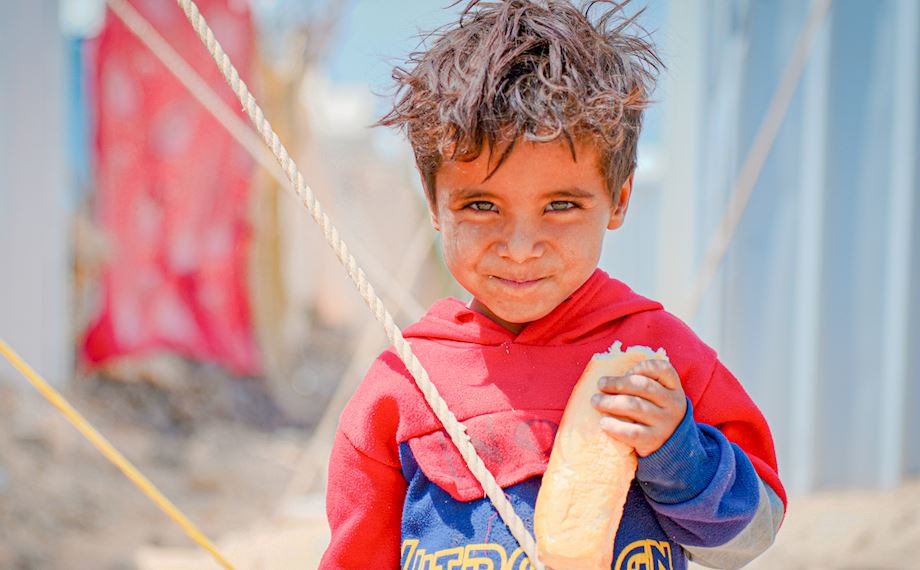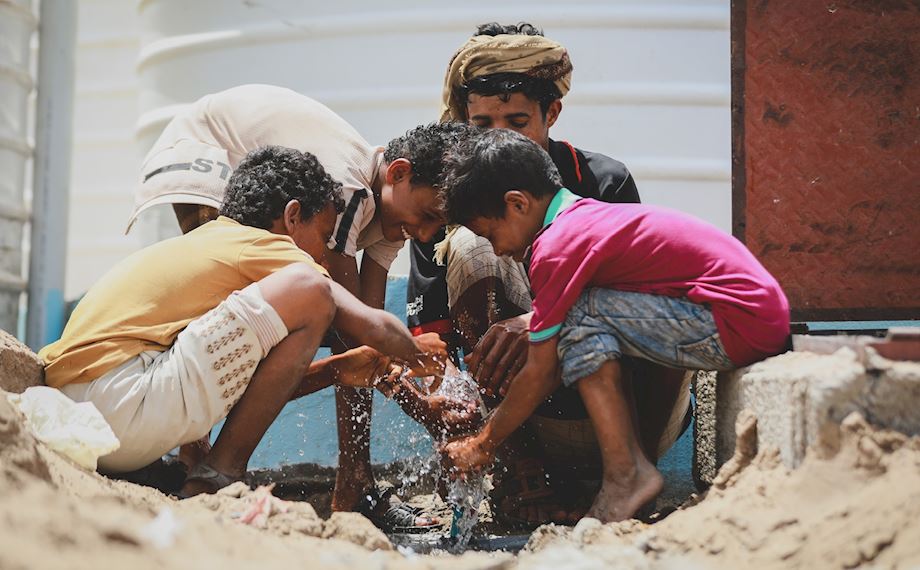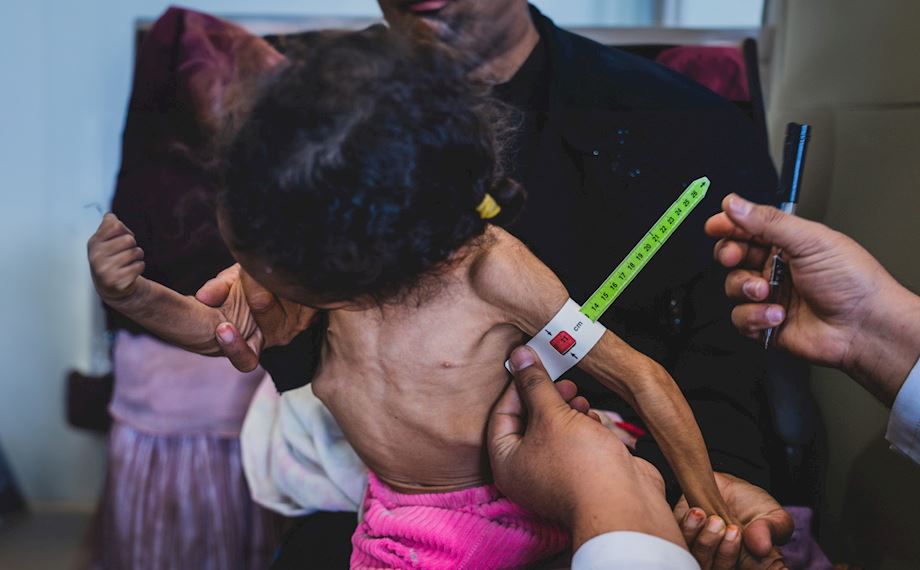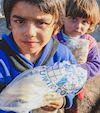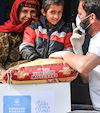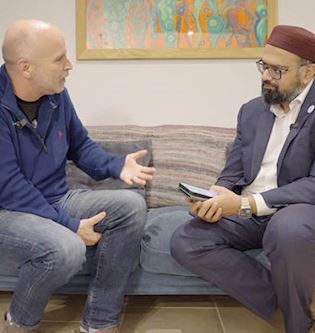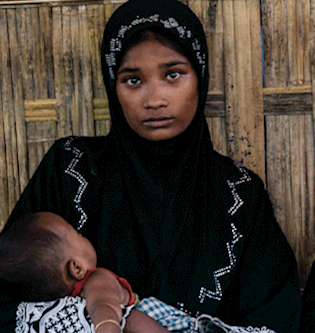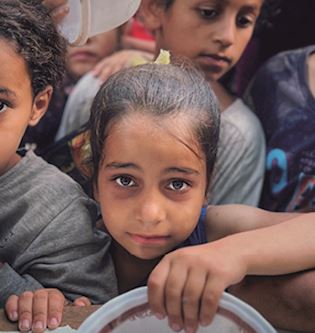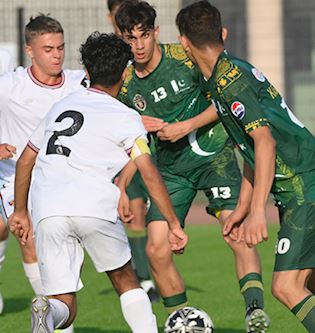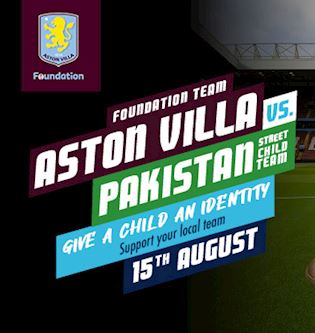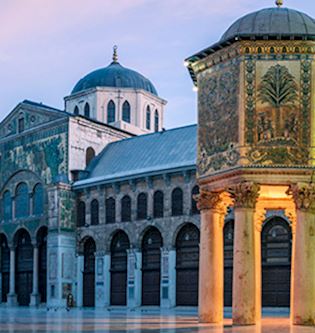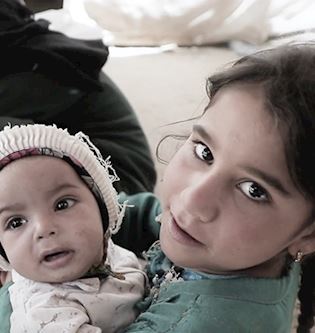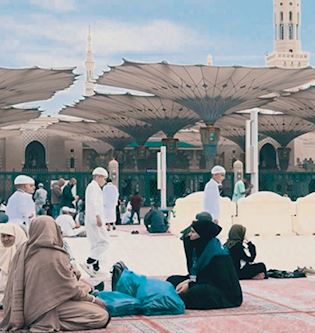Visiting Yemen: 'They still have hope in their hearts'

Our UK team were recently in Yemen, meeting its people, visiting our projects and collecting stories to share with you. Sahirah Javaid, our Senior Press Officer, was one of those who joined the trip. Here, she shares her thoughts on this journey of a lifetime.
Q: How did you feel when you landed in Yemen?
I was very, very scared to go to Yemen. Initially, I said no to the trip. Tijen, our Comms Manager, told me twice, 'I really think you should go'. And Yasrab, our Fundraising Director, said, 'It would be really good for you to go'. My mum encouraged me as well. So I remember just sitting at my desk and thinking, 'You know, I keep getting asked to go on this trip, so I feel like it's a sign that I need to go'.
I was really nervous leading up to it. I sorted out my affairs - outstanding money that I owed to certain people - and I made sure that everything was in place. I remember on the way to the airport - it's a bit melodramatic - I was saying to my brother, 'If anything happens to me, make sure my savings go to charity'.
When we left the airport in Yemen we noticed the destruction straight away. Buildings that had once stood tall were now reduced to rubble and as we went into our hotel, Abdul Rahman (the Director of the Yemen Office) pointed to an empty space next door which had once been a hotel. It had been bombed. I just had this sense of realness that we were in Yemen and anything could happen at any point. You look at the building - and it's completely gone, its windows are gone. Half the building's gone.
But as we walked around, people were friendly, people were just getting on with their lives, even though you know that these people have seen a lot.
Q: Can you give us an example of that? The friendliness of the people you met?
There was one lady that we saw outside our bread factory in Aden. Her name was Najbi. She had two bags in her hand, and we asked, 'Are all those loaves of bread yours?' She said, 'No, I'm collecting it for my neighbour, I'm going to give it to her later'.
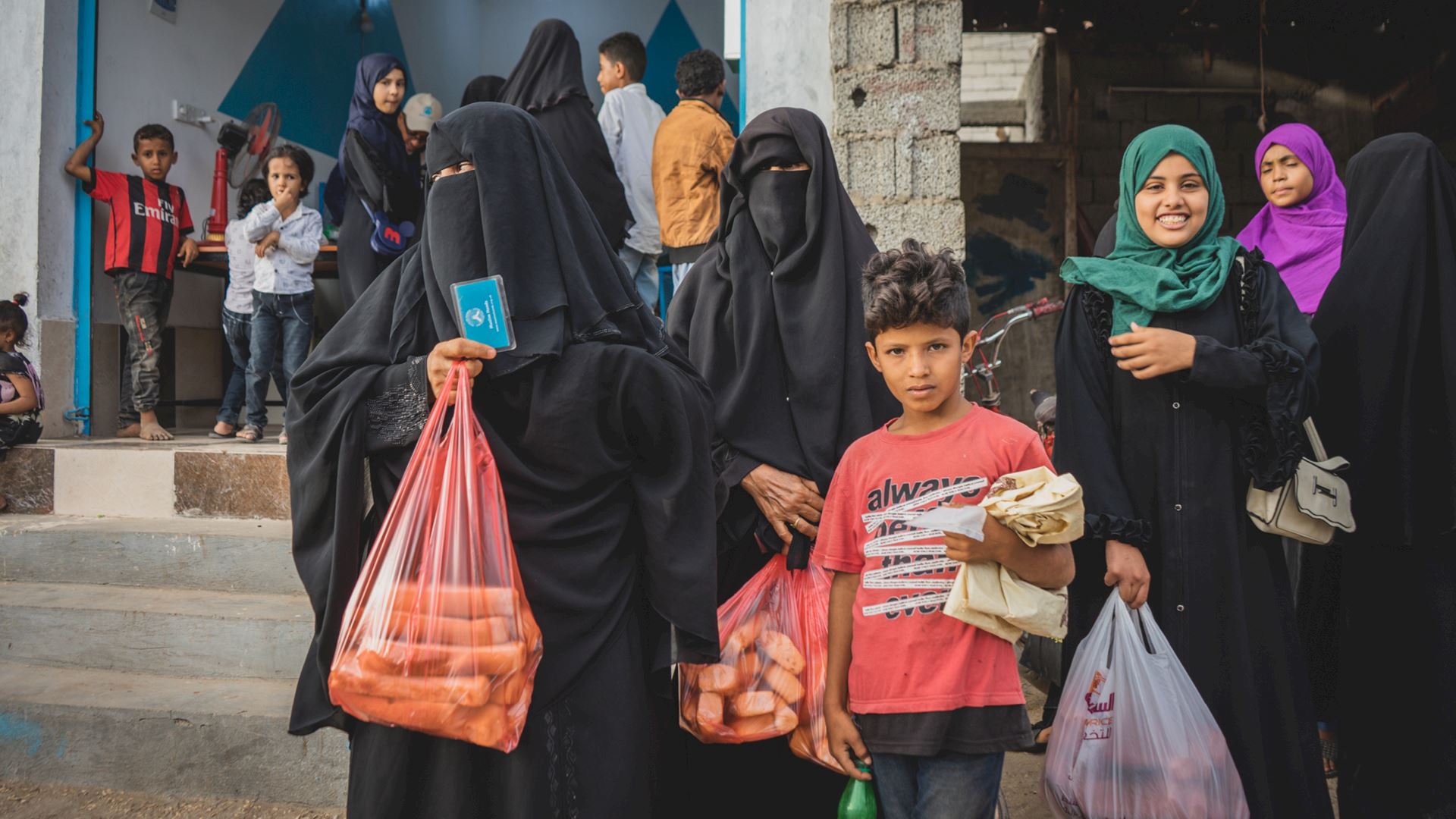
It was really nice to see that sense of community, everybody coming together, supporting one another. And the bread is like a glue that keeps them together. They collect it for one another, they meet up at the distribution points and have a conversation.
That was something I really, really loved - seeing how our bread reaches different pockets of the community. There's a centre for disabilities that we support as well, where our bread is enriching the lives of those children.
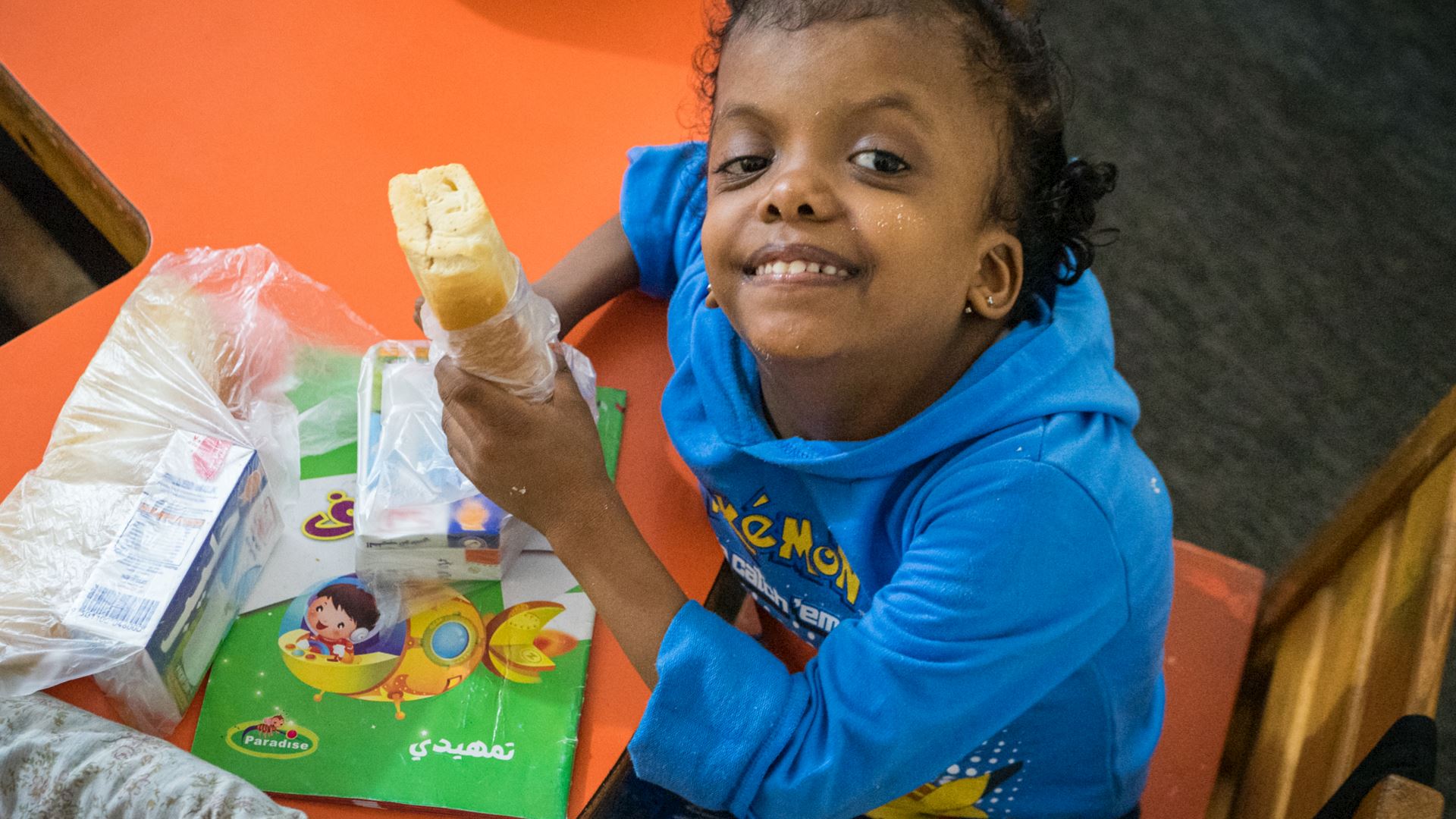
The families in Aden and Ma'rib showed us different ways that they use the bread. Some of the children eat the bread with jam, some of them would have it with cheese. Some people said if they don't have any of these things, they will dip it in black tea.
Q: What was something you didn’t expect to see at our bread factories?
There was something amazing that I want to point out. As we were standing at one of the bread distribution points, we noticed a complaints section on the door.
So if people are not happy with the bread, they can actually voice their opinions and concerns and the team will take it on board. That was so nice to see! We did ask, 'Has anybody ever used this?' and a beneficiary had said that they couldn't collect their bread in the allocated time, so our team would go to their home and give them the bread. That was the complaint they'd received and solved.
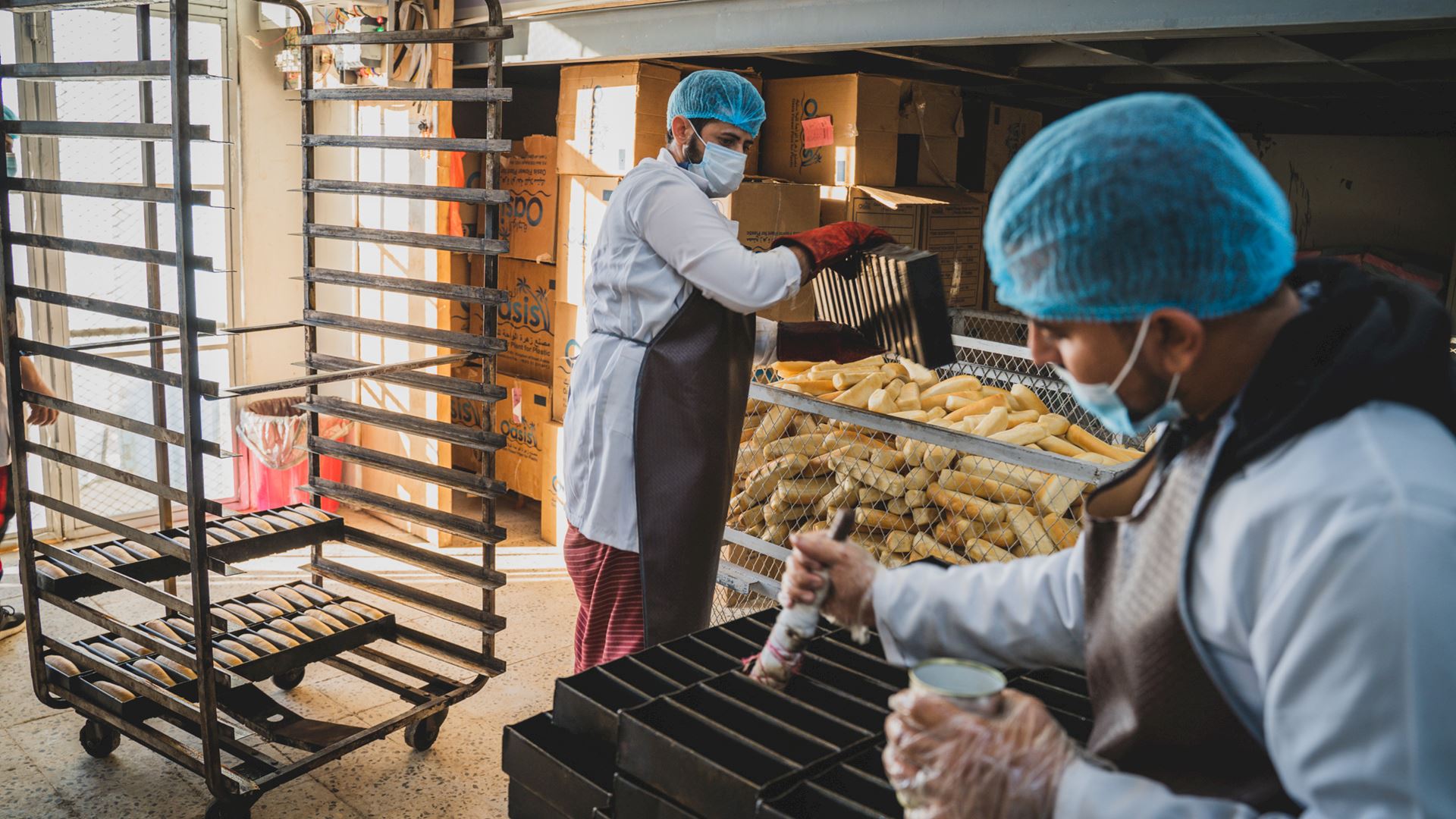
But we've never had any complaints about the quality of the bread. The comments I heard were always about how delicious the bread is. Just before you step into the factory, you're hit by this really inviting, sweet smell. A lot of people said, 'You use quality ingredients and we're very grateful for that'. Our loaf is 70 grams, while other charities give bread that is either 50 grams or 55 grams on average.
One of the things that really struck me about all of our bread factories was that each person who works there felt this sense of responsibility. They have pride in what they are doing because they know that they are making a difference. Honestly, I have to say they are doing such a phenomenal job.
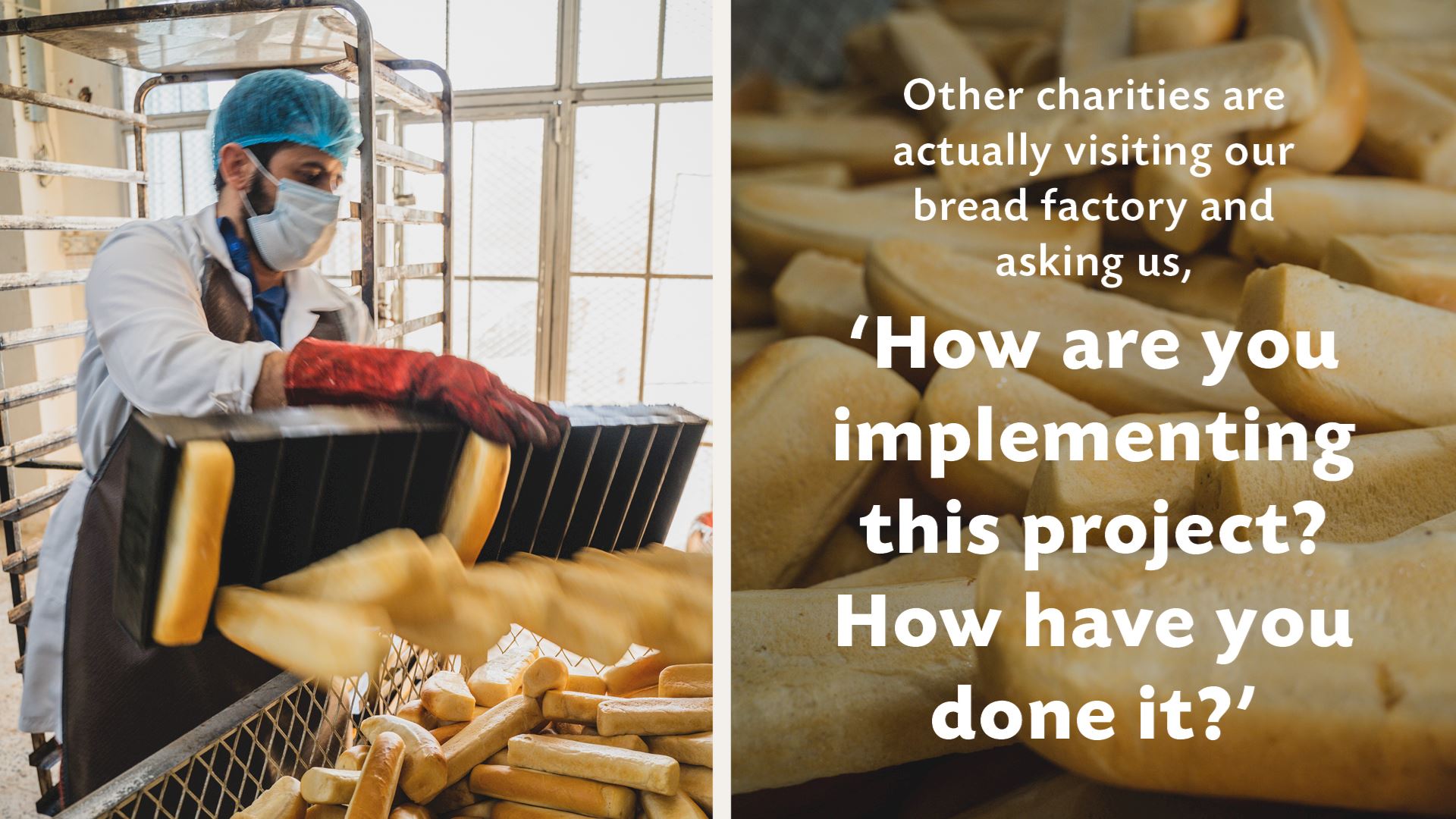
Because other organisations are buying bread and distributing it, but we are running our own bread factories - where we are employing people and baking 50,000 loaves per day.
Our colleagues are so immersed in this project that they will work extra shifts and go the extra mile. One of the managers said that it was so heart-warming for him to see people waiting for their bread. He knows them because they are regulars, so he was speaking to them and smiling.
Q: What is a story that has stayed with you since you left Yemen?
There is a story from Ma'rib, where we have a school feeding programme. There was a little boy we met called Amar, who's 12 years old. When I saw his face, it was like he had the whole world on his shoulders.
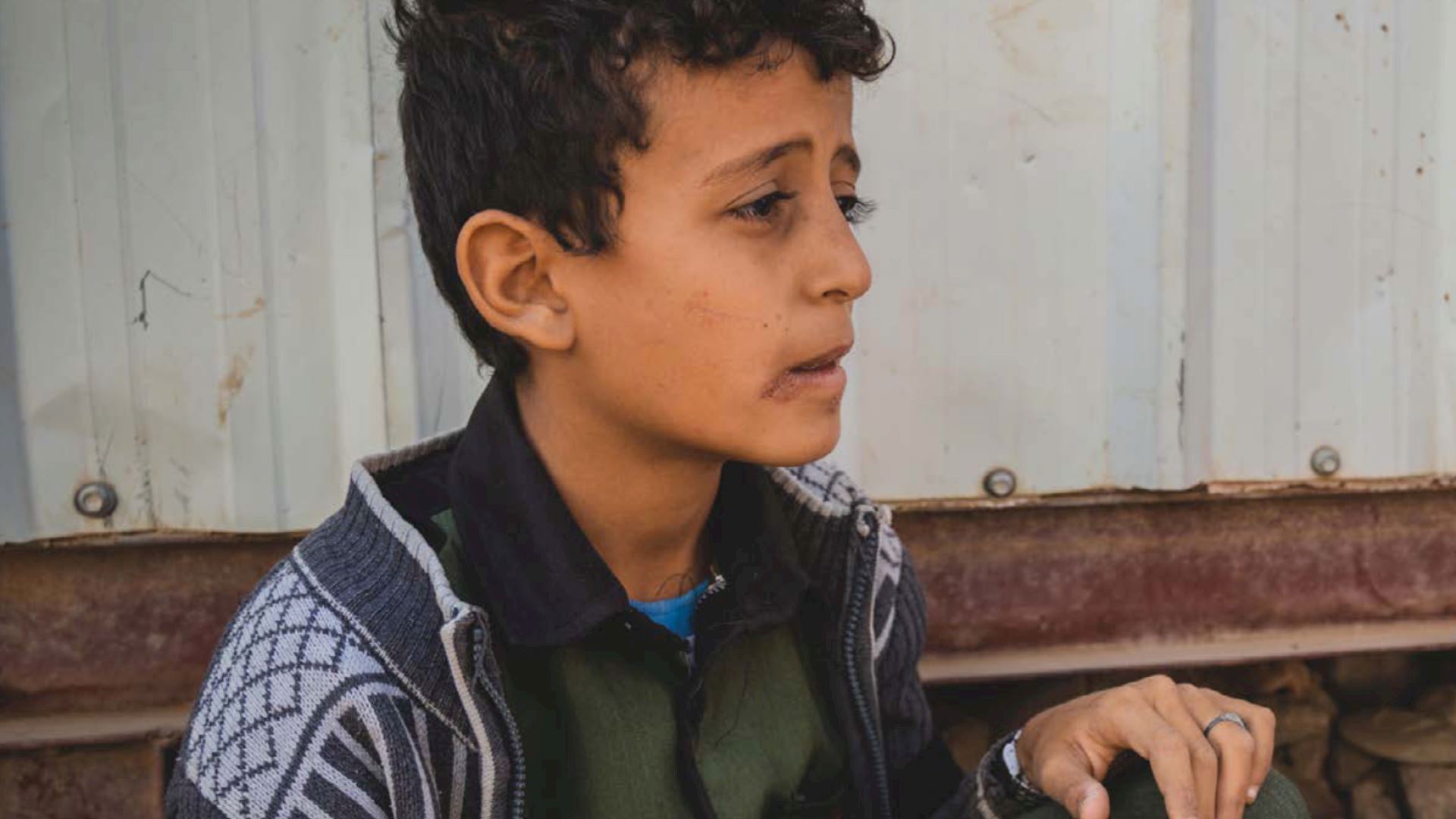
His classroom is cramped, there were 100 students, so he was finding it really difficult to study and pick up on things. After school, he sells perfume to make extra money for his family because his father was killed in 2016.
Amar talked about this sense of responsibility for his family. If any of them are ill and they need medical care, he will have to either borrow the money or work for it.
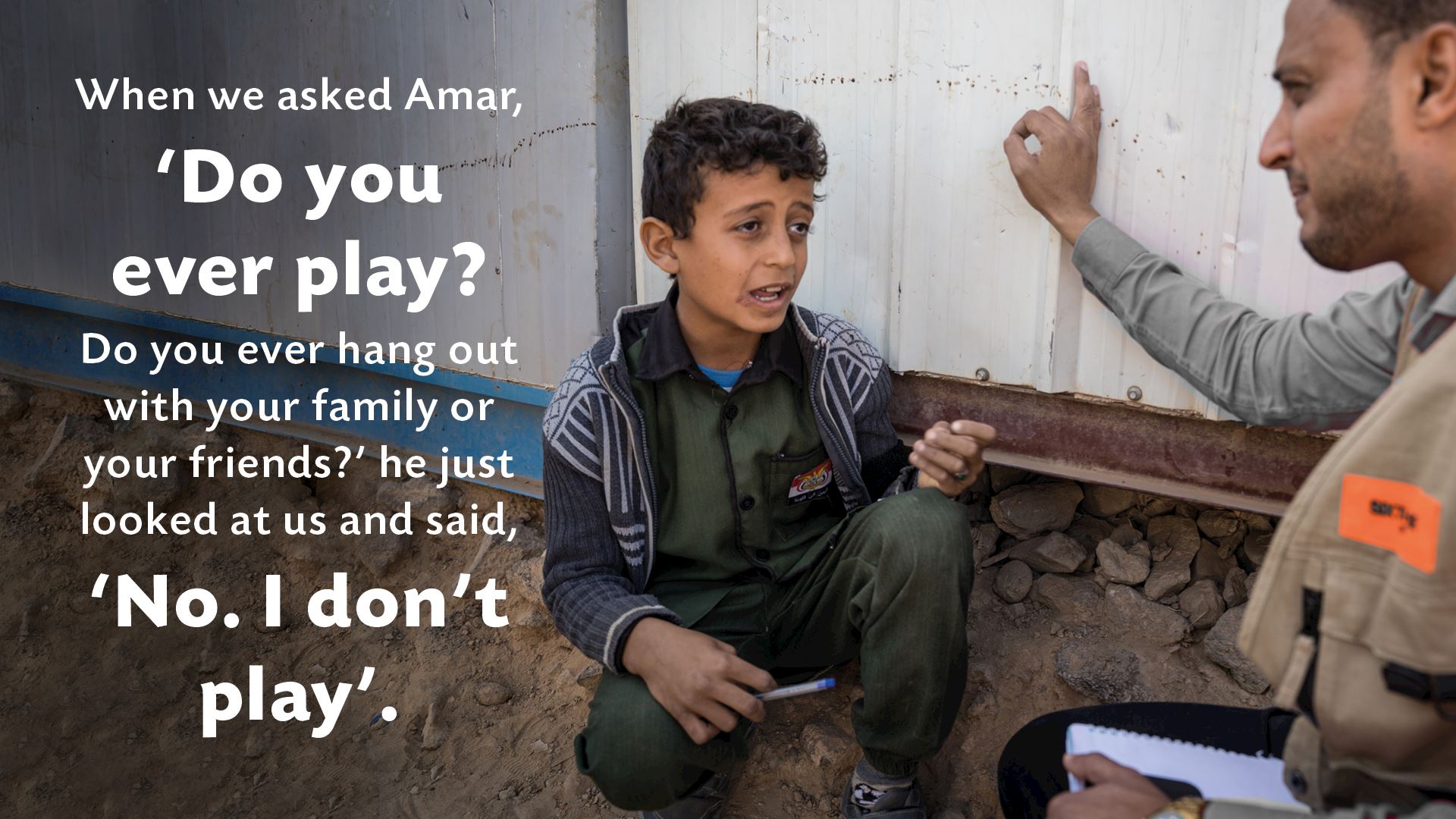
That was a lot to take in. I can't put it into words.
We went to Amar's home and saw that he lives in a steel container on the roof of somebody else's home. Their landlord allows his family to stay there. This one room is their kitchen, where they sleep, where they have a bath. As we spoke to the family, the kids never smiled.
Their mum said one thing to me and I just burst into tears. I asked her, 'How do you feel being in this space? Do you not feel quite claustrophobic?' and she said, 'As long as I have my three children, I have the world, so I'm content with what I have'.
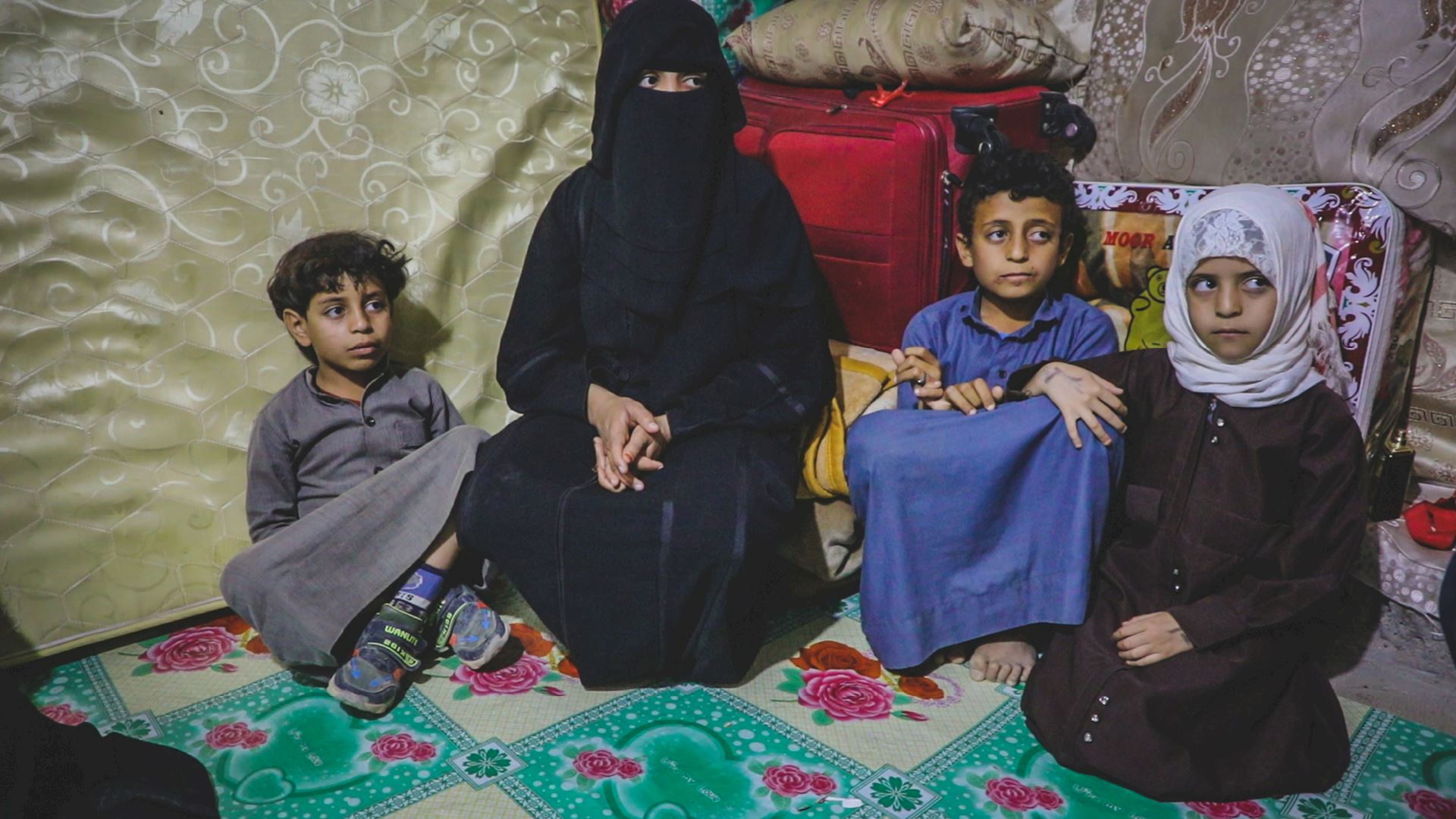
The other thing she said was, 'I just want my children to grow up quickly. So that I don't have to have this sense of responsibility'. She has this fear of not doing right by her children because of the landscape in Yemen. They could be killed or led down the wrong path.
When she said she wants her children to grow up quickly, I thought to myself, 'Your children are already growing up, because Amar is already responsible for your family'.
It was heart-breaking because you realise: a lot of children don't get to be children. A lot of children have this overwhelming responsibility that you just can't imagine. At 12 years old, you don't understand things, you're not fully-developed and yet Amar has a family he is responsible for.
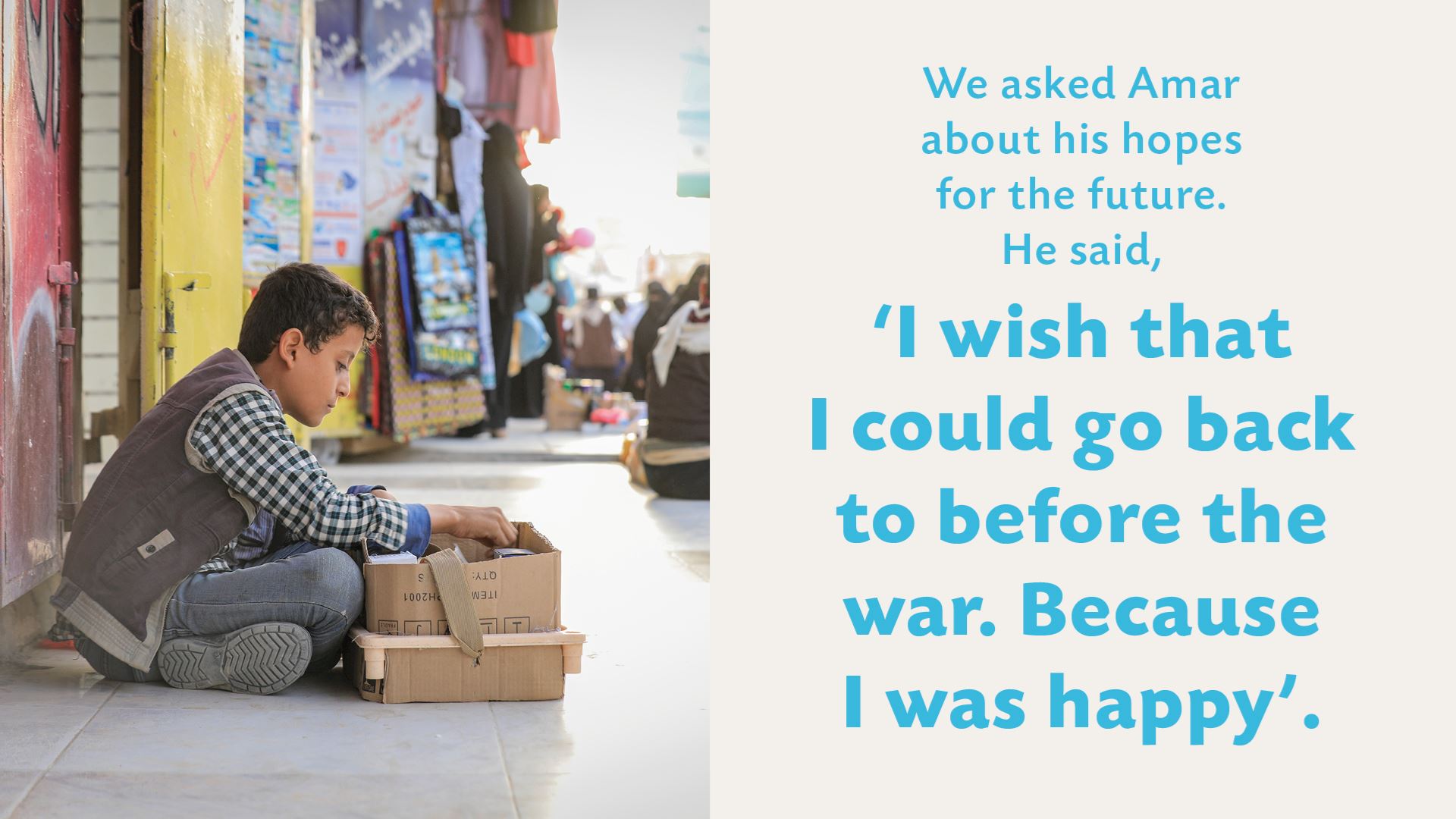
That story in particular, it really has stuck with me. Seeing those three children and their mum.
Q: This was in rural Ma'rib, which is sheltering a lot of displaced people. What's the situation like in the camps of Ma'rib?
We visited the Al-Suwaida Camp which is the second-largest camp in Ma'rib. There's around 120 camps because around 2 million displaced people have come into Ma'rib alone.
When you first arrive at the camp, it feels like you're on the moon. It’s deserted and you can see these pockets of tents. It’s very quiet and you're surrounded by mountains.
In the distance you can see our Ma'rib bread factory and when you see that, it's like - and I'm not exaggerating - it's like a beacon of hope. It's in the middle of nowhere and it's making such a difference.
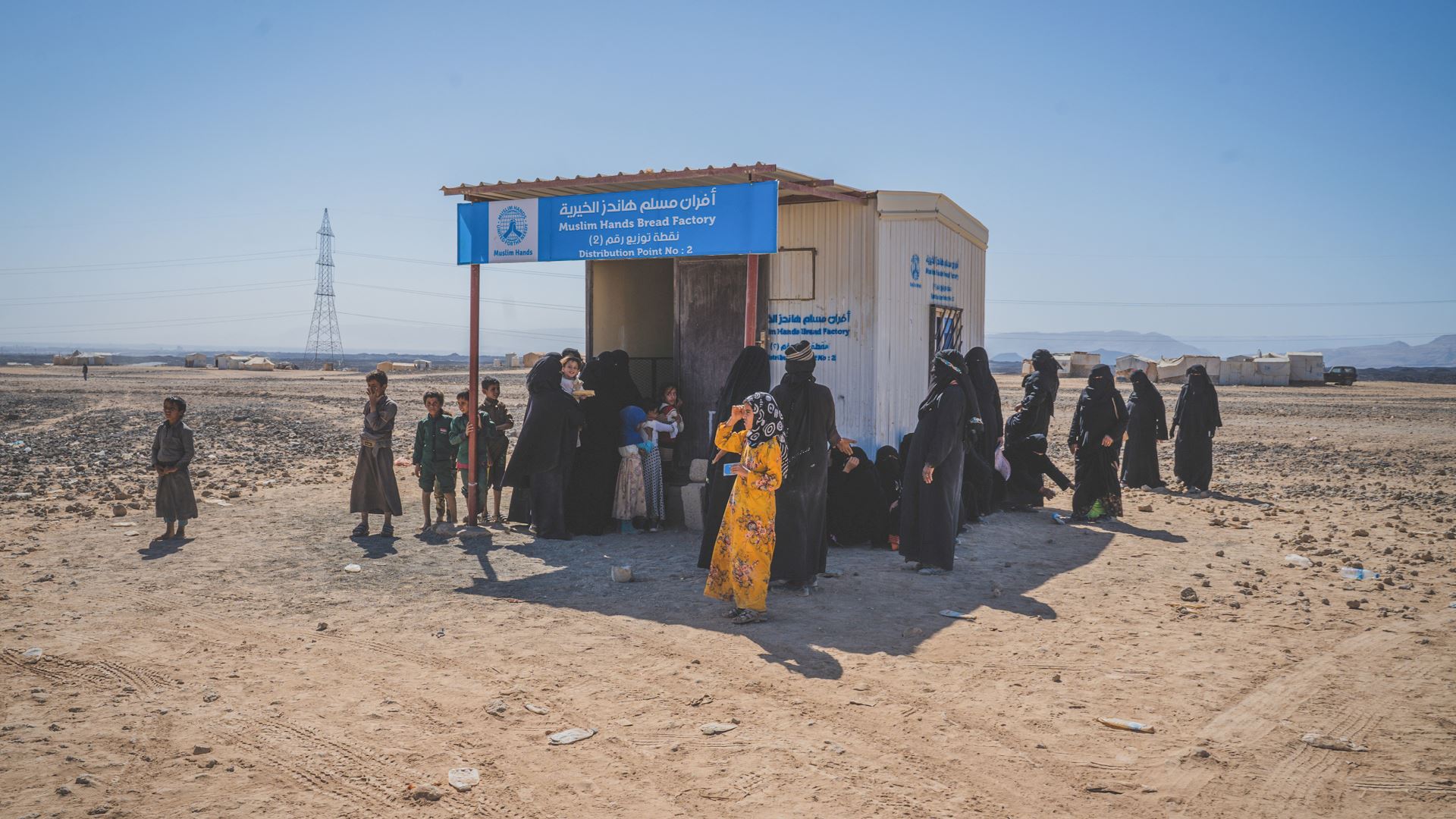
When I was distributing bread, families were tapping me on my shoulder and grabbing my abaya to say, 'Look, please, can we have our bread?'
If it wasn’t for this bread factory, there would be days when they wouldn't have any food. They were praising the donors and they were very, very thankful - because now, they have at least one meal a day.
Q: You've spoken about your feelings when you landed and some stories which struck you. Is there anything in particular which urged you to carry on doing charity work? How do you feel since returning to the UK?
Since I've been back, I've been drawing parallels. In Yemen, there's a lack of resources, a lack of water. You see people not eating for days, people relying on our projects - our water wells, school meals, medical centres. You just can't comprehend what goes through their minds on a daily basis.
It took a while to adjust and if I'm honest, I did feel a sense of guilt. My role on this trip was to collect and write up the stories and I don't want the beneficiaries to feel that we are just one in hundreds of charities that have spoken to them and left.
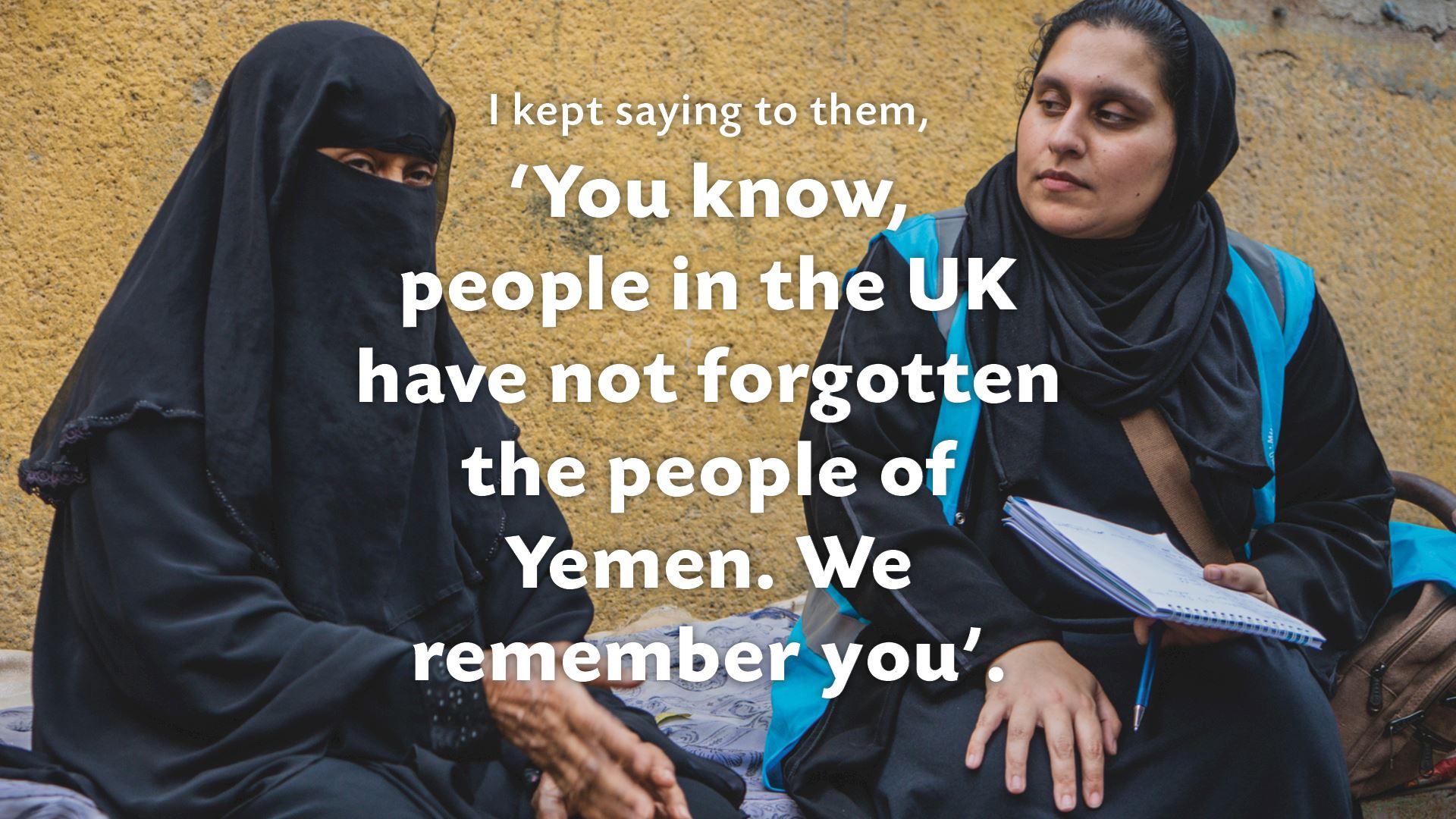
I kept reiterating, 'We can't fully feel what you feel - but we understand. We care and we don't want you to feel like we don't'.
Now when I make my du'as, I pray for them as well. I remember them. Because for them to share their stories was not easy. I don't want them to think that we took their story and forgot about them.
When we were in Ma'rib, a man walked past - and he was really angry. He said, 'I need help, my family needs help. You don't help me'. I looked up at the bread factory sign and it said, 'We support orphans, widows and those that are disabled' - because those are people that are the most vulnerable. But when he said that, it showed me there's so much more that needs to be done.
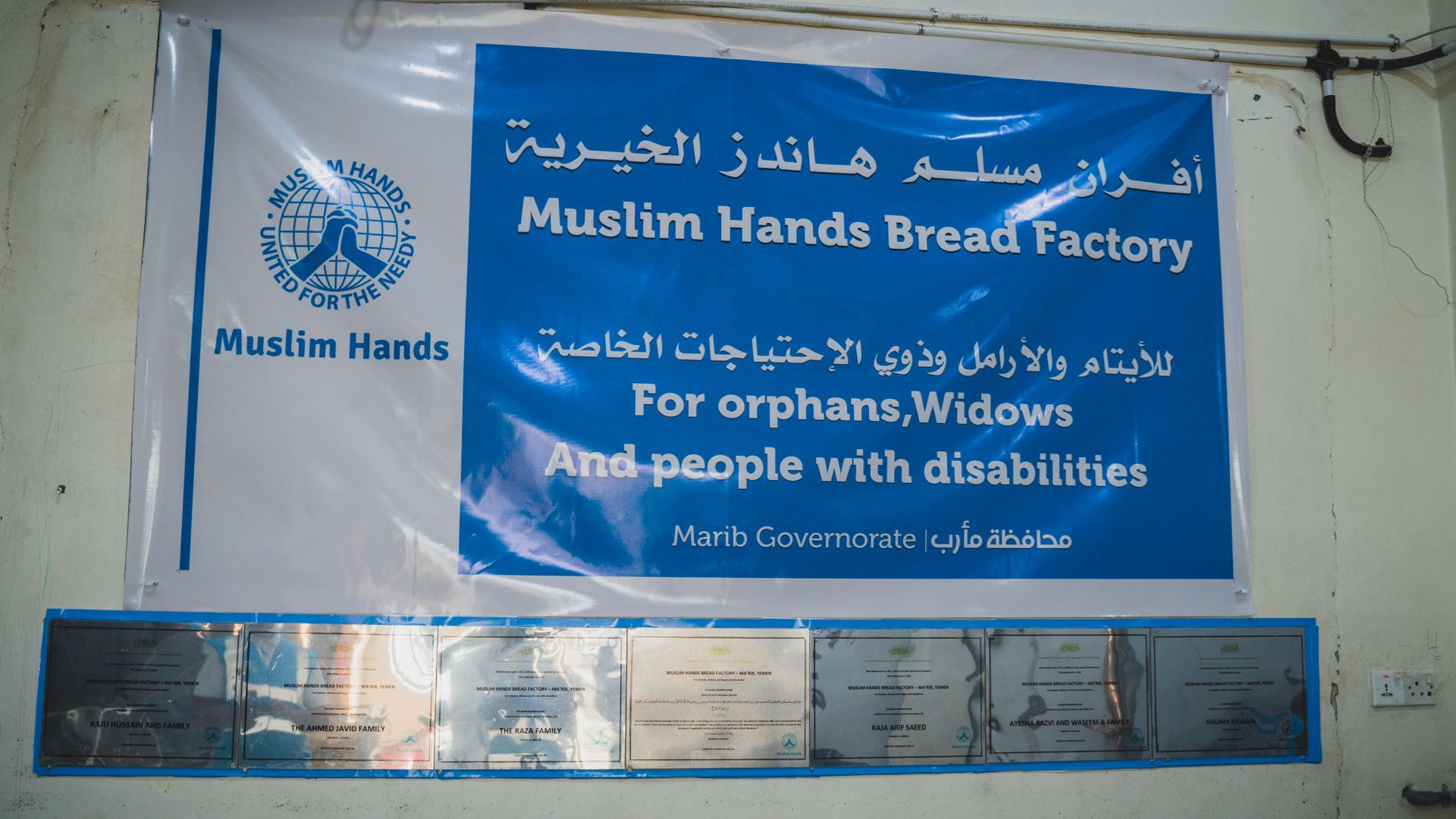
Our work is amazing, our bread factories are a beacon of hope - but it's a drop in the ocean. My biggest wish is that our projects remain and that we establish more of them, because they are a lifeline.
Q: Is there any particular message you want to give to people who read this interview?
The most important thing I learned was this sense of tawakkul. The families I met don't know what's coming tomorrow. Yemen is a land so blessed yet so full of uncertainties. Its people have that much trust in God that they know that tomorrow will be better, in sha Allah.
They keep going, they keep striving. They said to us, 'Alhamdulillah'. That was really eye-opening.
They're stuck in the brunt of a conflict and they have limited choices. They've lost their family members, their possessions, their home, their memories of what they had, where they were. It made me realise how many choices I have in my life. It would be a disservice to what God has given me if I don't make the most of my life. It puts things into perspective - just how fortunate we are and how we should always be grateful for what God has given us.
When I saw people in Yemen and how they keep going, how they made us feel welcome - it made me realise that they still have that hope in their hearts. And that we should live with hope as well.
Muslim Hands is an award-winning charity, established in 1993 to provide emergency relief and tackle the root causes of poverty. You can support Yemen by providing bread, water for life, medical care and more. Click here to send these blessed people your Zakat and Sadaqah.





